Looking to stay on top of the most important mergers and acquisitions shaping the global market? This regularly updated tracker brings you the latest closed deals, upcoming transactions, and the biggest M&A moves in recent years. From healthcare and fintech to manufacturing and AI, we cover it all—complete with deal values, dates, and strategic insights.
Bookmark this page for ongoing updates as new deals close and new players enter the game.
Why not check out: Recent, upcoming, and largest M&A deals
Most Recent M&A Deals (in 2025 and 2026 so far)
1. T-Mobile acquisition of U.S. Cellular

- Date closed: August 1, 2025
- Value: $4.3 billion
- Industry: Telecommunications
Originally announced on May 28, 2024, T-Mobile’s acquisition of U.S. Cellular includes U.S. Cellular’s wireless customers, its entire retail footprint, and ~30% of its spectrum assets. The transaction officially closed on August 1, 2025, with T‑Mobile assuming $1.7 billion in debt and paying $2.6 billion in cash, for a total of around $4.3 billion after final adjustments.
T‑Mobile now serves more than 4 million former U.S. Cellular customers, who initially remain on their existing plans but can smoothly transition to T‑Mobile if they choose. The acquisition significantly boosts T‑Mobile’s rural network footprint, especially its 5G coverage and capacity, aligning with its strategy to position as the national leader in connectivity and value.
2. Mallinckrodt Pharmaceuticals and Endo Pharmaceuticals merger


- Date closed: August 1, 2025
- Value: $6.7 billion
- Industry: Pharmaceutical
Mallinckrodt plc and Endo, Inc. officially merged on August 1, 2025 to form a combined therapeutics company, in a deal that was originally announced in March 2025. The combined company is valued at approximately $6.7 billion and expects to achieve around $75 million in annual pre-tax run-rate operating synergies within the first 12 months post-merger. These savings will come from integrating business functions, realizing R&D efficiencies, and leveraging economies of scale across operations.
Both companies underwent Chapter 11 restructurings tied to opioid-related litigation. The merger allowed the two companies to consolidate free of most legacy opioid liabilities, a controversial point given the human cost of the opioid epidemic. The newly formed entity’s operational footprint comprises 17 manufacturing facilities, 30 distribution centers, and 5,500–5,700 employees across key international markets.
3. Brookfield Infrastructure Partners acquisition of Colonial Enterprises, Inc.

- Date closed: July 31, 2025
- Value: $9 billion
- Industry: Energy Logistics (Colonial Pipeline)
Brookfield Infrastructure Partners (BIP) has finalized the purchase of Colonial Enterprises Inc., the parent company of Colonial Pipeline, for approximately $9 billion, inclusive of existing debt. The acquisition expands its North American midstream infrastructure portfolio, enhancing its control over one of the largest fuel transport systems in the U.S. Colonial Pipeline spans over 5,500 miles from Texas to New York and transports up to 2.5 million barrels per day, representing nearly 45% of East Coast fuel consumption across 14 states.
Brookfield becomes the first sole owner since Colonial’s construction. Although the ownership transfer is complete, regulatory approvals remain pending. The closing timeline was initially set for the second half of 2025, with regulators expected to sign off by Q4 2025.
4. La Caisse (formerly CDPQ) acquisition of Innergex Renewable Energy
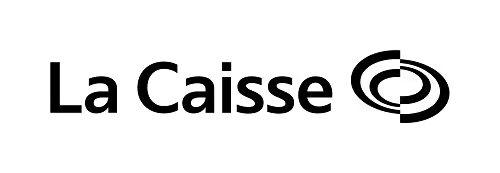
- Date closed: July 21, 2025
- Value: $7 billion
- Industry: Renewable energy
On February 25, 2025, Caisse de dépôt et placement du Québec (CDPQ, rebranded as La Caisse in June 2025) announced a C$10 billion all-cash acquisition to take Innergex private. This values Innergex at approximately C$13.75 per common share, constituting a 58% premium to its pre-announcement market price.
Innergex officially became a privately held company on July 21, 2025, as La Caisse completed the acquisition. As a private company, Innergex is better positioned to execute large-scale renewable projects swiftly, shielded from public‑market cycles. The syndication model brings in co-investors aligned on long‑term growth. La Caisse's global reach and capital strength support Innergex’s international ambitions, especially across energy markets in Chile, France, and the U.S.
5. Chevron acquisition of Hess Corporation
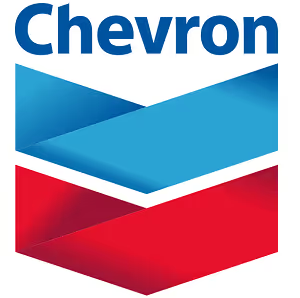
- Date closed: July 18, 2025
- Value: $53 billion
- Industry: Energy
On July 18, 2025, Chevron formally closed the acquisition of Hess Corporation, in a deal valued at approximately $53 billion. The deal, initially announced in October 2023, finally went through after Chevron won a critical international arbitration in Paris. That ruling cleared Chevron's path to acquire Hess’s 30% stake in the Stabroek Block, a major offshore oilfield in Guyana with over 11 billion barrels of oil equivalent.
Exxon Mobil, which operates the Guyana field and holds 45% of the block (alongside CNOOC’s 25%), had attempted to block Chevron’s entry by asserting a right of first refusal. The arbitration panel rejected that challenge, clearing the way for the Hess acquisition to conclude.
Analysts forecast that the deal will drive Chevron’s production up toward 4.2–4.31 million barrels per day within the next few years, narrowing the gap with Exxon’s output. The deal also addresses Chevron’s reserve depletion: its proven reserves had declined to around 9.8 billion boe by the end of 2024.
With Hess now absorbed, Chevron joins other major international oil producers in securing long-term access to one of the fastest-growing upstream regions in the world. The move marks a strategic counterweight to Exxon’s recent acquisition of Pioneer Natural Resources, signaling an intensifying rivalry.
6. Nippon Steel acquisition of U.S. Steel

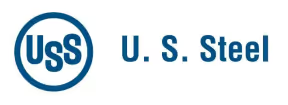
- Date closed: June 18, 2025
- Value: $14.9 billion
- Industry: Steel
In one of the more controversial acquisitions, Nippon Steel finalized its acquisition of U.S. Steel for $14.9 billion (~$55/share) on June 18, 2025. Previously blocked by then-President Biden, President Trump reversed the block via an executive order on June 13, 2025, conditional upon a new National Security Agreement (NSA) between Nippon Steel and the U.S. government.
Finalizing the deal required Nippon Steel to commit to numerous conditions aimed at preserving U.S. Steel’s national identity and operations. Among the most notable, Nippon Steel is required to invest roughly $11 billion in U.S. operations by 2028, including significant modernization and expansion projects, and maintain U.S. Steel’s corporate citizenship, headquarters in Pittsburgh, and U.S. management, including a U.S.-led board and CEO.
The agreement includes a “golden share” for the U.S. government, allowing presidential veto authority over major decisions, such as relocation, investment deviations, name changes, plant closures, or executive appointments. This arrangement made the merged company the world’s second-largest steel producer, with annual capacity reaching around 86 million tonnes, just behind China’s Baowu Group.
7. KKR & Co. and PSP Investments acquisition of a stake in American Electric Power Co.
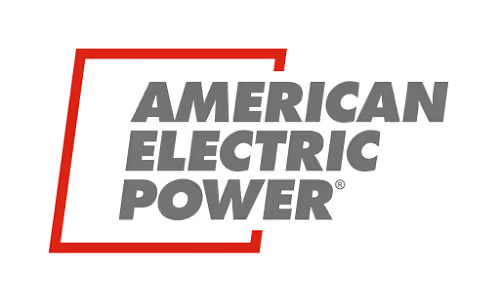
- Date closed: June 5, 2025
- Value: $2.8 billion
- Industry: Energy
In January 2025, investment firms KKR & Co. and the Public Sector Pension Investment Board (PSP Investments) announced an agreement to acquire a 19.9% minority stake in American Electric Power's (AEP) transmission businesses in Ohio, Indiana, and Michigan for $2.82 billion. This strategic partnership aims to support AEP's efforts to enhance grid reliability and meet the growing electricity demand in these regions.
The deal officially closed on June 5, 2025, completing the previously announced agreement. Proceeds from the transaction support AEP’s $54 billion capital plan (2025–2029) focused on transmission, distribution, and generation projects, including offsetting roughly $5.35 billion in equity financing needs through 2029. The deal boosts AEP’s earnings right away, improves its credit profile, and allows the company to maintain full operational control of the assets.
8. Sanofi acquisition of Dren Bio’s DR-0201
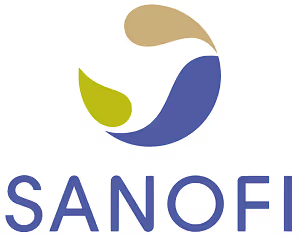
- Date closed: May 27, 2025
- Value: $1.9 billion
- Industry: Pharmaceutical
In March 2025, Sanofi announced plans to acquire DR-0201, a bispecific myeloid cell engager from Dren Bio, for $600 million upfront, with potential milestone payments up to $1.3 billion, for a total value of up to $1.9 billion. The move brings a promising first‑in‑class bispecific myeloid engager into Sanofi’s pipeline and underscores its vision to lead in immune-reset therapies.
Sanofi’s structure of upfront and milestone payments reduces early risk while retaining long-term upside with future approvals or launches. Dren Bio will continue to operate as an independent company, advancing its broader portfolio of targeted myeloid engager therapeutics.
9. Payoneer acquisition of Easylink Payment Co., Ltd.

- Date closed: April 9, 2025
- Value: Not disclosed
- Industry: Financial services
Payoneer, the global fintech company, wrapped up its acquisition of Easylink Payment Co., Ltd.—a licensed payment services provider in China—in April 2025. With this move, Payoneer becomes the third foreign payment platform approved to offer online payment services in China.
CEO John Caplan said the acquisition strengthens Payoneer's global regulatory reach and helps them bring more tailored products and services to Chinese businesses looking to grow internationally.
10. Kandu Health and Neurolutions merger

- Date closed: April 8, 2025
- Value: $30 million (in new funding)
- Industry: Healthcare
Kandu Health and Neurolutions have joined forces to become Kandu, Inc., with a shared goal of transforming stroke recovery. By combining Neurolutions’ brain-computer interface (BCI) tech with Kandu Health’s personalized telehealth services, they’re creating a more complete, at-home solution for stroke survivors and their caregivers.
The new company aims to tackle the common gaps in post-stroke care, which can often be short-term and disconnected. Backed by $30 million in funding—co-led by Ally Bridge Group and AMED Ventures—Kandu is now focused on pushing its solution further into the market.
11. Transcarent and Accolade merger

- Date closed: April 8, 2025
- Value: $621 million
- Industry: Healthcare
Transcarent, the digital health platform, has officially acquired Accolade for $621 million, closing the deal on April 8, 2025. This merger brings together Transcarent’s AI-driven WayFinding navigation and care tools with Accolade’s strengths in health advocacy, expert medical opinions, and virtual primary care.
Now serving over 20 million members and 1,700+ employer and health plan clients, the combined company is focused on delivering a more complete and personalized healthcare experience.
12. Forcepoint acquisition of Getvisibility

- Date closed: April 7, 2025
- Value: Not disclosed
- Industry: Tech
On April 7, 2025, Forcepoint, a global leader in data security, finalized its acquisition of Getvisibility, an Irish company known for its AI-powered Data Security Posture Management (DSPM) and Data Detection and Response (DDR) solutions.
The move is set to strengthen Forcepoint’s Data Security Everywhere platform by adding Getvisibility’s advanced AI tech—giving organizations better real-time visibility and control over data risks in hybrid cloud setups and generative AI environments.
13. Stifel Financial acquisition of B. Riley Employee Advisors
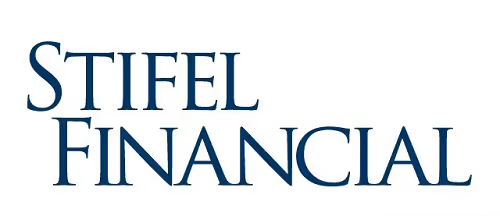
- Date closed: April 7, 2025
- Value: Not disclosed
- Industry: Financial services
On April 7, 2025, Stifel Financial Corp. completed its acquisition of B. Riley Financial’s employee brokerage unit, bringing in around $4 billion in client assets and 36 financial advisors to its Global Wealth Management business. The deal boosts Stifel’s wealth management capabilities and broadens its client reach.
Valued between $27 million and $35 million, the acquisition was structured as an asset purchase, with the final price based on how many advisors made the move to Stifel. It didn’t include B. Riley’s independent advisors or tax professionals. The move is part of Stifel’s ongoing strategy to grow its wealth management footprint through selective acquisitions.
14. NeoGenomics acquisition of Pathline
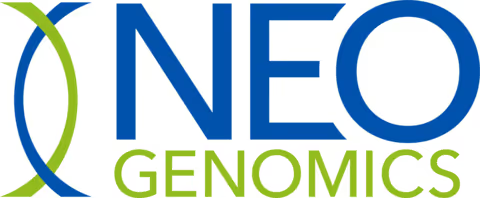
- Date closed: April 7, 2025
- Value: Not disclosed
- Industry: Healthcare
NeoGenomics, a leading cancer diagnostics company, officially acquired Pathline, LLC on April 7, 2025. Pathline is a CLIA/CAP/NYS-certified lab based in New Jersey, and the deal helps NeoGenomics expand its reach in the Northeast, giving more patients and doctors in the Tri-state area access to its full range of oncology tests and lab services.
Founded in 2009, Pathline partners with hospitals, cancer centers, and physician practices—mostly in the Northeast. With this acquisition, NeoGenomics aims to accelerate growth in areas like molecular and hematology-oncology testing. The deal is expected to drive revenue growth and deliver cost savings, with the financial upside likely to kick in by 2026.
15. Aptean acquisition of Logility

- Date closed: April 5, 2025
- Value: $442.75 million
- Industry: Tech
Aptean, a global provider of industry-specific software, has officially completed its acquisition of Logility Supply Chain Solutions, Inc.—an AI-first supply chain management software company. The deal, first announced on January 24, 2025, was finalized on April 3 after getting the green light from Logility’s shareholders.
This move strengthens Aptean’s lineup by adding Logility’s AI-powered supply chain planning tools, which help companies build more sustainable and digital supply chains. As part of the agreement, Aptean bought all outstanding Logility shares at $14.30 each in cash. With the deal closed, Logility’s stock is no longer listed on the Nasdaq or any other public exchange.
16. Novartis acquisition of Anthos Therapeutics

- Date closed: April 3, 2025
- Value: $3.1 billion
- Industry: Pharmaceutical
On April 3, 2025, Novartis completed its acquisition of Anthos Therapeutics, a clinical-stage biopharma company focused on cardiometabolic diseases, in a deal worth up to $3.1 billion. The agreement includes a $925 million upfront payment, with the rest tied to future regulatory and commercial milestones.
The deal highlights Novartis’s ongoing push to grow its cardiovascular portfolio and stay focused on its core therapeutic areas.
17. Nano Dimension acquisition of Desktop Metal
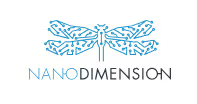
- Date closed: April 2, 2025
- Value: $179.3 million
- Industry: Manufacturing
Nano Dimension, a leader in digital manufacturing, has officially acquired Desktop Metal, a maker of industrial 3D printers. The all-cash deal, first announced in July 2024, closed at around $179.3 million, or $5.295 per share.
This strategic acquisition brings together Nano Dimension’s strength in 3D-printed electronics with Desktop Metal’s metal and polymer additive manufacturing expertise. The combined company plans to deliver a full suite of advanced manufacturing solutions—including hardware, materials, and software—for industries like aerospace and defense, automotive, consumer electronics, industrial automation, and medical tech.
18. Hope Bancorp and Territorial Bancorp merger

- Date closed: April 2, 2025
- Value: $78.6 million
- Industry: Financial services
Hope Bancorp, the Los Angeles-based parent company of Bank of Hope, has completed its merger with Territorial Bancorp Inc., the holding company for Honolulu’s Territorial Savings Bank.
As of April 2, 2025, Territorial Savings Bank will continue serving local communities under the name Territorial Savings, a division of Bank of Hope, keeping its 100+ year legacy alive. With this move, Bank of Hope became the largest regional bank focused on serving multicultural customers across both the continental U.S. and Hawaii.
19. Ballymore Safety Products acquisition of Valley Craft Industries

- Date closed: April 1, 2025
- Value: Not disclosed
- Industry: Manufacturing
Ballymore Safety Products, backed by One Equity Partners, has acquired Valley Craft Industries, a Minnesota-based manufacturer known for its material handling, drum handling, and storage solutions.
The deal marks Ballymore’s fourth acquisition since 2021 and sets up its new Midwest headquarters. It also significantly boosts the company’s U.S. manufacturing footprint and broadens its product lineup—further solidifying Ballymore’s role as a top provider of safety, vertical access, and material handling solutions across the country.
20. Lantheus acquisition of Evergreen Theragnostics
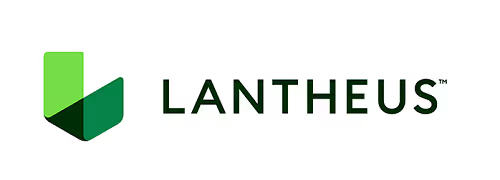
- Date closed: April 1, 2025
- Value: $1.0025 billion
- Industry: Pharmaceutical
Lantheus Holdings, a company focused on radiopharmaceuticals, completed its acquisition of Evergreen Theragnostics on April 1, 2025. The deal, first announced in January, includes a $250 million upfront payment, with the potential for up to $752.5 million more in milestone payments.
This acquisition strengthens Lantheus' presence across the entire radiopharmaceutical value chain—boosting its development, manufacturing, and commercialization capabilities.
21. Renasant Corporation and The First Bancshares, Inc. merger

- Date closed: April 1, 2025
- Value: $1.2 billion
- Industry: Financial services
Renasant Corporation, based in Tupelo, Mississippi, has officially completed its merger with Hattiesburg-based The First Bancshares, Inc. on April 1, 2025. The all-stock deal, first announced in July 2024, is valued at around $1.2 billion.
Now combined, the two banks operate more than 250 locations offering banking, lending, mortgage, and wealth management services across the Southeastern U.S.—including Mississippi, Alabama, Florida, Georgia, Louisiana, North Carolina, and South Carolina. This merger positions Renasant as a major regional player with expanded services and a wider reach to better support customers and communities throughout the region.
22. Seagate acquisition of Intevac
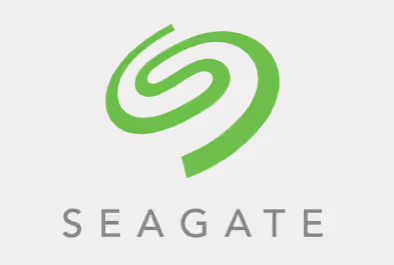
- Date closed: March 31, 2025
- Value: $95.87 million
- Industry: Tech
Seagate Technology has officially completed its acquisition of Intevac, Inc., a supplier of thin-film processing systems. The process began with a cash tender offer of $4.00 per share, which closed on March 28, 2025, with nearly 88% of Intevac’s shares tendered.
Seagate finalized the deal through a merger on March 31, making Intevac a wholly owned subsidiary. As part of the acquisition, Intevac’s shares are no longer traded and have been delisted from the Nasdaq Global Select Market.
23. AMD acquisition of ZT Systems
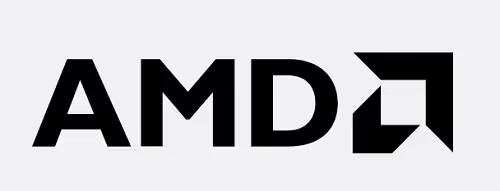
- Date closed: March 31, 2025
- Value: $4.9 billion
- Industry: Tech
Advanced Micro Devices (AMD) wrapped up its $4.9 billion acquisition of ZT Systems on March 31, 2025, in a cash and stock deal. ZT Systems is known for providing AI and general-purpose compute infrastructure to hyperscale computing companies.
With this move, AMD is looking to strengthen its position in the data center AI space by bringing in ZT Systems’ deep expertise in building and scaling large-scale computing solutions.
24. xAI acquisition of X (formerly Twitter)

- Date closed: March 28, 2025
- Value: $33 billion
- Industry: Tech
Elon Musk’s AI company, xAI, has acquired the social media platform X (formerly Twitter) in an all-stock deal that values xAI at $80 billion and X at $33 billion—including $12 billion in debt.
Musk says the goal of the merger is to bring together xAI’s advanced AI tech with X’s massive user base to improve user experience and push forward knowledge and innovation. This move comes after Musk’s 2022 acquisition of Twitter for $44 billion and its rebranding to X. The combined companies are expected to benefit from shared resources, with the potential to boost X’s features and speed up xAI’s progress in the AI space.
25. Rafael Holdings, Inc. and Cyclo Therapeutics, Inc. merger
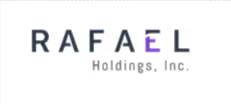
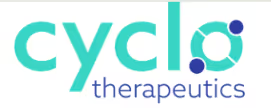
- Date closed: March 26, 2025
- Value: Not disclosed
- Industry: Pharmaceutical
Rafael Holdings has officially merged with Cyclo Therapeutics, following shareholder approval from both sides. As part of the deal, Rafael issued Class B common stock to Cyclo shareholders, giving them about a 22% stake in the combined company based on an exchange ratio of 0.3525.
Rafael Holdings President and CEO Bill Conkling called the merger a major milestone in advancing clinical-stage assets aimed at treating diseases with significant unmet medical needs.
26. World Wide Technology acquisition of Softchoice Corp.
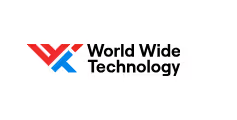
- Date closed: March 17, 2025
- Value: $1.3 billion (C$1,478,242,241)
- Industry: Tech
World Wide Technology (WWT) has finalized its $1.3 billion all-cash acquisition of Softchoice Corporation, a Toronto-based IT solutions provider focused on software and cloud services. The deal closed on March 4, 2025, following shareholder approval.
With this move, WWT strengthens its capabilities in software, cloud, cybersecurity, and AI—expanding its reach across North America. Softchoice’s strong footprint in Canada and its focus on serving small and mid-sized businesses complement WWT’s existing offerings, helping the combined company support clients through every stage of their AI and digital transformation journeys.
27. Diversified Energy acquisition of Maverick

- Date closed: March 14, 2025
- Value: $1.275 billion
- Industry: Energy
Diversified Energy Company PLC completed its $1.275 billion acquisition of Maverick Natural Resources, a portfolio company of EIG Global Energy Partners, on March 14, 2025.
The deal marks a big step forward for Diversified, expanding its footprint into the Permian Basin—especially the Northern Delaware Basin—and boosting its presence in the Western Anadarko Basin. This move fits perfectly with the company’s strategy of acquiring mature, low-decline assets that generate steady cash flow and long-term value for shareholders.
28. Rio Tinto acquisition of Arcadium Lithium

- Date closed: March 6, 2025
- Value: $6.7 billion
- Industry: Energy
On March 6, 2025, Rio Tinto finalized its $6.7 billion all-cash acquisition of Arcadium Lithium plc. This strategic move strengthens Rio Tinto’s position as a major global lithium producer and supports its role in powering the energy transition.
By bringing Arcadium into the fold, Rio Tinto is set to boost its lithium production capacity significantly, targeting over 200,000 tonnes per year of lithium carbonate equivalent by 2028. The deal puts the company in a strong position to meet the rising demand for lithium fueled by the growth of electric vehicles and renewable energy storage.
29. TKO Group Holdings acquisition of IMG, On Location Experiences, and Professional Bull Riders (PBR)
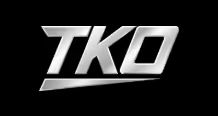
- Date closed: February 28, 2025
- Value: $3.25 billion
- Industry: Sports and event management
On February 28, 2025, TKO Group Holdings (TKO) completed its $3.25 billion all-equity acquisition of IMG, On Location Experiences, and Professional Bull Riders (PBR) from Endeavor Group Holdings.
With this deal, TKO—already home to UFC and WWE—adds major sports and entertainment brands to its portfolio, strengthening its position in live events, media rights, ticketing, and brand partnerships. As part of the transaction, Endeavor now holds around 59% ownership of TKO.
30. IBM acquisition of HashiCorp
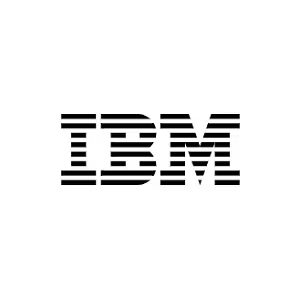
- Date closed: February 27, 2025
- Value: Not disclosed
- Industry: Tech
IBM has officially completed its $6.4 billion acquisition of HashiCorp, a leading provider of multi-cloud infrastructure automation tools. The all-cash deal closed on February 27, 2025, with IBM acquiring all outstanding HashiCorp shares at $35 each.
This move marks a major step in IBM’s push to strengthen its hybrid cloud and AI capabilities. The company plans to integrate HashiCorp’s tech with its existing platforms—like Red Hat OpenShift and Ansible Automation—to deliver a more unified, powerful approach to infrastructure and application management across both public and private clouds.
31. Stryker acquisition of Inari Medical

- Date closed: February 19, 2025
- Value: $4.9 billion
- Industry: Medical devices
On February 19, 2025, Stryker Corporation finalized its $4.9 billion all-cash acquisition of Inari Medical, Inc., purchasing all outstanding shares at $80 each. Inari is known for its innovative devices that treat venous thromboembolism (VTE) without relying on thrombolytic drugs.
Inari’s key products (the FlowTriever for pulmonary embolism and the ClotTriever for peripheral thrombectomy) fit well with Stryker’s Neurovascular business and expand its interventional endovascular offerings. Stryker Chair and CEO Kevin Lobo called the acquisition a major step forward in strengthening their position in this space.
Following the deal, Inari’s shares have been delisted from the Nasdaq Global Select Market.
32. Quikrete acquisition of Summit Materials
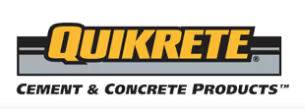
- Date closed: February 10, 2025
- Value: $11.5 billion
- Industry: Construction/building materials
On February 10, 2025, Quikrete Holdings, Inc. completed its $11.5 billion all-cash acquisition of Summit Materials, Inc., including assumed debt. The deal brings together Quikrete’s leadership in packaged concrete and cement-based products with Summit’s large-scale operations in aggregates and cement production.
The merger creates a vertically integrated construction materials powerhouse, aimed at boosting product offerings and driving greater efficiency across North America. As part of the acquisition, Summit’s stock has been delisted from the NYSE, and the company is now a privately held subsidiary of Quikrete.
33. Swisscom acquisition of Vodafone Italia
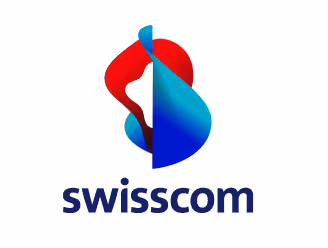
- Date closed: December 31, 2024
- Value: $8.6 billion
- Industry: Telecommunications
On December 31, 2024, Swisscom completed its €8 billion cash acquisition of Vodafone Italia. The plan is to merge Vodafone Italia with Swisscom’s Italian arm, Fastweb, creating a major player in Italy’s telecom market.
Walter Renna, CEO of the new combined company, called it a game-changer for Italian telecom, aiming to drive the country’s digital future. Swisscom CEO Christoph Aeschlimann said the deal boosts the group’s long-term value through stronger cash flow and dividends.
By combining Fastweb’s fixed-line strength with Vodafone’s mobile leadership, the new entity plans to offer innovative, affordable services to households, businesses, and public institutions across Italy.
Notable Upcoming Mergers and Acquisitions (lined-up for late 2025-2027)
- Union Pacific and Norfolk Southern merger
- Charter Communications and Cox Communications merger
- Alphabet acquisition of Wiz
- Palo Alto Networks acquisition of Cyber Ark
- Constellation Energy acquisition of Calpine Corporation
- Baker Hughes acquisition of Chart Industries
- Blackstone acquisition of TXNM Energy
- Clearlake Capital acquisition of Dun & Bradstreet
- CPP Investments & GIP acquisition of Allete
- Dick’s Sporting Goods acquisition of Foot Locker
1. Union Pacific and Norfolk Southern merger
- Projected Date: 2027
- Value: $85 billion
- Industry: Transportation/Railroad/Freight
In July 2025, Union Pacific announced an $85 billion stock-and-cash acquisition of Norfolk Southern to create the first coast-to-coast freight railroad in U.S. history. The deal aims to unify the western and eastern U.S. rail networks, reduce interchanges, improve reliability, and expand access to ports and key logistics hubs. The merger promises $2.75 billion in annual synergies and faster service but faces regulatory scrutiny over competition, pricing power, and labor protections.
However, the deal faces significant regulatory scrutiny over competition, price power, and union concerns. Rail unions and customer groups are already mobilizing for hearings, making approval by early 2027 uncertain.
2. Charter Communications and Cox Communications merger
- Projected Date: 2026
- Value: $35.4 billion
- Industry: Telecommunications
In May 2025, Charter Communications agreed to acquire Cox Communications in a major transaction valued at approximately $34.5 billion, which includes Cox’s roughly $12 billion in debt. After closing, the combined company will serve roughly 38 million residential and business customers across the U.S (31.4 million via Charter and 6.3 million via Cox). Despite Charter acting as the acquirer, the entity will ultimately take on the name Cox Communications, with Spectrum becoming the consumer‑facing brand.
This deal positions the merged company as America’s largest cable‑broadband operator, gaining scale benefits, enhanced negotiating leverage with content providers, and broader reach into Cox’s fast‑growth markets like Phoenix, Las Vegas, and Southern California.
3. Alphabet acquisition of Wiz
- Projected Date: 2026
- Value: $32 billion
- Industry: Technology/Software
In March 2025, Alphabet, Google's parent company, announced its acquisition of Israeli-American cybersecurity startup Wiz for approximately $32 billion in cash. This landmark deal will be the largest in Alphabet's history since its $13 billion acquisition of Motorola Mobility. The transaction is subject to regulatory approval, including U.S. and possibly international antitrust scrutiny.
The acquisition aims to boost Google Cloud’s security capabilities, especially as organizations increasingly adopt AI and multicloud strategies. This move underscores Alphabet’s ambition to catch up with AWS and Microsoft in the cloud race by doubling down on AI‑era security infrastructure and embracing emerging enterprise needs across multicloud environments.
4. Palo Alto Networks acquisition of Cyber Ark
- Projected Date: 2026
- Value: $25 billion
- Industry: Cybersecurity/Technology
Palo Alto Networks has agreed to acquire CyberArk Software Ltd. in a landmark transaction valued at approximately $25 billion, marking the company’s largest acquisition to date. This deal marks Palo Alto Networks’ formal entry into the identity security sector, elevating it to a core pillar of its broader multi-platform strategy, which already includes network, cloud, endpoint, and AI‑driven security via its Strata™ and Cortex® offerings.
Analysts see the acquisition as a milestone in cybersecurity consolidation that will position Palo Alto as a competitor to platform leaders like Microsoft and Cisco.
5. Constellation Energy acquisition of Calpine Corporation
- Projected Date: Q4 2025
- Value: $16.4 billion
- Industry: Energy
In January 2025, Constellation Energy announced plans to acquire Calpine Corporation in a cash-and-stock deal valued at $16.4 billion, totaling $26.6 billion when including debt. This strategic acquisition aims to position Constellation as the largest independent power provider in the U.S., enhancing its capacity to meet the increasing electricity demand driven by energy-intensive sectors such as AI data centers and the electrification of transportation.
6. Baker Hughes acquisition of Chart Industries
- Projected Date: 2026
- Value: $13.6 billion
- Industry: Energy/Industrial Technology
Baker Hughes will acquire Chart Industries for $210 per share, representing a 22% premium over Chart’s share price before the announcement. The deal is expected to close by mid-2026, contingent on regulatory and shareholder approvals.
This acquisition marks a deliberate shift by Baker Hughes from traditional oilfield services into high‑growth sectors like LNG, data center cooling, hydrogen, carbon capture, and broader industrial energy tech. At $13.6 billion, the deal also reflects strong deal discipline and shareholder value creation, both for Chart via a premium and for Baker via expected synergies.
7. Blackstone acquisition of TXNM Energy
- Projected Date: Q4 2025
- Value: $11.5 billion
- Industry: Energy
On May 19, 2025, Blackstone Infrastructure Partners reached an agreement to acquire TXNM Energy for $61.25 per share in cash, implying a total enterprise value of $11.5 billion (which includes net debt and preferred stock). The purchase price represents roughly a 15% premium over recent stock prices.
Blackstone is making this acquisition amid surging electricity demand in the U.S., driven by growth in AI and crypto data centers, commercial and residential load increases, which supports rising valuations for regulated utilities. The acquisition remains subject to shareholder approval, and regulatory clearances from the New Mexico Public Regulation Commission, Texas Public Utility Commission, and relevant federal regulators, with an expected closing in the second half of 2026.
8. Clearlake Capital acquisition of Dun & Bradstreet
- Projected Date: Q3 2025
- $7.7 billion
- Industry: Business data & analytics
In March 2025, Clearlake Capital Group announced its agreement to acquire Dun & Bradstreet Holdings, Inc., a leading global provider of business decisioning data and analytics, in a transaction valued at $7.7 billion, including debt. The acquisition, which was overwhelmingly approved by Dun & Bradstreet Holdings Inc. shareholders on June 12, 2025, aims to leverage Dun & Bradstreet's extensive data assets to deliver AI-powered solutions to its global client base.
9. CPP Investments & GIP acquisition of Allete
- Projected Date: Q3-Q4 2025
- Value: $6.2 billion
- Industry: Energy
The Canada Pension Plan Investment Board (CPP Investments) and Global Infrastructure Partners (GIP) announced at the end of 2023 that they would take US-based energy company Allete private. The hope for this deal is that it will give Allete the capital it needs to continue innovating. In December 2024, the Federal Energy Regulatory Commission (FERC) approved the proposed transaction.
However, on May 1, 2025, several public-interest groups and state agencies filed legal briefs asking Minnesota’s Public Utilities Commission (MPUC) to deny approval of the deal. Later, on July 15, 2025, the Administrative Law Judge (ALJ) Megan McKenzie overseeing the MPUC review issued a non‑binding recommendation that the commission reject the transaction, echoing those earlier concerns.
ALLETE issued a response on July 15, 2025, noting its disagreement with the recommendations and reinforcing its belief that the planned sale is in the public’s best interest.
10. Dick’s Sporting Goods acquisition of Foot Locker
- Projected Date: Q4 2025
- Value: $2.4 billion
- Industry: Fashion & Retail/Sporting Goods
Dick’s Sporting Goods has agreed to acquire Foot Locker, Inc. for approximately $2.4 billion in equity value (or about $2.5 billion enterprise value). The deal represents a ~86% premium over Foot Locker’s recent closing share price. This marks Dick’s largest-ever acquisition, significantly expanding its footprint beyond the U.S., with Foot Locker bringing approximately 2,400 locations across ~20 countries.
The acquisition positions Dick’s as a new global leader in sports retail, combining its operational reach with Foot Locker’s international presence and sneaker heritage. Foot Locker will operate as a standalone business unit, with its brands, including Foot Locker, Kids Foot Locker, Champs Sports, WSS, and atmos, remaining intact.
Biggest M&A Deals of 2024
- ExxonMobil acquisition of Pioneer
- ConocoPhillips acquisition of Marathon Oil
- Home Depot acquisition of SRS Distribution
- Johnson & Johnson acquisition of Shockwave Medical
- AbbVie acquisition of ImmunoGen
- Roark Capital acquisition of Subway
- Realty Income Corporation merger with Spirit Realty Capital
- Cedar Fair merger with Six Flags Entertainment Company
- Stonepeak acquisition of Textainer
- Sunoco acquisition of NuStar Energy
- Permira acquisition of Squarespace
- Honeywell acquisition of Carrier Global
- KPS Capital Partners acquisition of Innomotics GmbH
- Nationwide Building Society's acquisition of Virgin Money
- Energy Transfer acquisition of WTG Midstream
- Alcoa acquisition of Alumina Limited
- SAP acquisition of WalkMe
1. ExxonMobil acquisition of Pioneer
- Date closed: May 3, 2024
- Value: $59.5 billion
- Industry: Energy
In the largest deal, by far, of the year, ExxonMobil paid out nearly $60 billion in stock to acquire Pioneer, a hydrocarbon exploration company. This acquisition gives ExxonMobil increased access to the Midland and Permian Basins, more than doubling the company’s footprint. Exxon Mobil’s shares were valued at $253 at the time.
On the announcement of the deal, ExxonMobil’s Chairman and CEO, Darren Woods, said, “The combined capabilities of our two companies will provide long-term value creation well in excess of what either company is capable of doing on a standalone basis.”
Although it took until May 2024 for this acquisition to be finalized, analysts have already noted how it will help ExxonMobil cement its status as the dominant force in the U.S. fracking industry, ensuring that it has more places to drill than all of its main rivals. It also gives Exxon increased access to the Permian basin, which runs through parts of Texas and New Mexico, where Exxon will accelerate Pioneer’s net-zero Permian ambition to 2035.
2. ConocoPhillips acquisition of Marathon Oil
- Date closed: November 22, 2024
- Value: $22.5 billion
- Industry: Energy
This all-stock deal is the second largest of the year, as well as further evidence that the past few years have been good ones for the oil industry. Flush with cash from months of elevated oil prices, ConocoPhillips is following in the footsteps of ExxonMobil and Chevron, all of which are making moves to grab as much as they can in the Permian Basin.
3. Home Depot acquisition of SRS Distribution
- Date closed: June 18, 2024
- Value: $18.25 billion
- Industry: Retail
The acquisition of SRS, a leading residential specialty trade distribution company, is widely seen as a smart one for Home Depot. Not only does it give the retailer additional capabilities across several verticals, it also increases its total addressable market to an astonishing $1 trillion.
4. Johnson & Johnson acquisition of Shockwave Medical
- Date closed: May 31, 2024
- Value: $13.1 billion
- Industry: Healthcare
In one of the most significant healthcare deals of 2024, Johnson & Johnson paid out over $13 billion – made up of a mix of cash on hand and debt – to take over medical device manufacturer Shockwave Medical. This purchase expands Johnson & Johnson’s portfolio of coronary artery disease (CAD) and peripheral artery disease (PAD) treatments, two fast growing segments of the healthcare market.
5. AbbVie acquisition of ImmunoGen
- Date closed: February 12, 2024
- Value: $10.1 billion
- Industry: Pharmaceutical
Pharmaceutical giant AbbVie made a move to further bolster its cancer care portfolio with its purchase of ImmunoGen, an antibody-drug conjugate specialist. Specifically, this deal gives AbbVie access to Elahere, an ovarian cancer treatment.
6. Roark Capital acquisition of Subway
- Date closed: April 30, 2024
- Value: $9.5 billion
- Industry: Food
Subway, along with its debt, was snatched up by private equity firm Roark Capital in this nearly $10 billion deal. This marks a significant transition for the sandwich chain, which had been family owned since its inception.
7. Realty Income Corporation merger with Spirit Realty Capital
- Date closed: January 22, 2024
- Value: $9.3 billion
- Industry: Real estate
Trading under the symbol “O” on the NYSE, Realty Income and Spirit Realty Capital’s new company now has a combined portfolio worth $3.8 billion to $4.5 billion in annualized contractual rent revenue. While huge, convenience stores look like they’ll remain the largest industry for the combined company.
8. Cedar Fair merger with Six Flags Entertainment Company
- Date closed: July 1, 2024
- Value: $8 billion
- Industry: Entertainment
Popular amusement park operator Six Flags has combined forces with Cedar Fair, another amusement park operator, to form the largest amusement park company in all of North America. The new company hopes the merger will give it increased flexibility to continue to make strategic investments in its parks.
9. Stonepeak acquisition of Textainer
- Date closed: March 17, 2024
- Value: $7.4 billion
- Industry: Shipping
Stonepeak, an investment firm that specializes in infrastructure assets, has taken over shipping container producer Textainer and turned it into a private company. Through this acquisition, Textainer hopes to gain additional access to investment capital in order to continue its growth.
10. Sunoco acquisition of NuStar Energy
- Date closed: May 1, 2024
- Value: $7.3 billion
- Industry: Energy
By taking over NuStar Energy, a fuels storage and pipeline operator, Sunoco is making a strategic move to diversify its business beyond just fuel distribution. The deal gives Sunoco access to NuStar's extensive transportation and storage facilities, which includes almost 10,000 miles of pipelines.
11. Permira acquisition of Squarespace
- Date closed: October 17, 2024
- Value: $7.2 billion
- Industry: Tech
Squarespace, a prominent platform that entrepreneurs have been using the past several years to build their online brands, went private in this all-cash deal. Initially, Permira offered $44 per share, valuing the company at $6.9 billion. Following recommendations from proxy advisory firms, Permira increased the offer to $46.50 per share, bringing the total valuation to approximately $7.2 billion.
12. Honeywell acquisition of Carrier Global
- Date closed: June 3, 2024
- Value: $4.9 billion
- Industry: Manufacturing
Manufacturing conglomerate Honeywell paid nearly $5 billion in cash to acquire Carrier Global, a provider of heating, refrigeration, ventilation, and fire solutions, among many other products. Specifically, this deal gives Honeywell access to Carrier’s Global Access Solutions security business, helping to expand its security products portfolio.
13. KPS Capital Partners acquisition of Innomotics GmbH
- Date closed: October 1, 2024
- Value: $3.8 billion
- Industry: Manufacturing
Investment firm KPS completed its acquisition of Innomotics, a leading global supplier of electric motor and large-drive systems, from technology conglomerate Siemens. Known for its investments in manufacturing and industrial companies, KPS plans to work closely with Innomotics management to increase its profits.
14. Nationwide Building Society's acquisition of Virgin Money
- Date closed: September 30, 2024
- Value: $3.75 billion
- Industry: Finance
By acquiring its smaller rival, Nationwide Building Society became the UK’s second-largest mortgage lender. Virgin Money’s largest investor, Sir Richard Branson, was set to receive nearly $860 million from the deal.
15. Energy Transfer acquisition of WTG Midstream
- Date closed: July 15, 2024
- Value: $3.5 billion
- Industry: Energy
In yet another energy acquisition aimed at increasing oil holdings, Energy Transfer paid out $2.45 billion in cash and 50.8 million in shares to take over WTG Midstream. This gives Energy Transfer access to WTG’s assets, including its 6,000-mile pipeline network along the Midland Basin.
16. Alcoa acquisition of Alumina Limited
- Date closed: August 12, 2024
- Value: $2.2 billion
- Industry: Mining
This deal gives Alcoa, one of the world’s largest aluminum producers, control over the Australian-based Alumina. The goal of this acquisition is to make Alcoa less reliant on other suppliers, as well as help it handle projected increases in demand.
17. SAP acquisition of WalkMe
- Date closed: September 12, 2024
- Value: $1.5 billion
- Industry: Tech
Software giant SAP took over WalkMe, a digital adoption platform, in this all-cash deal. Not only does this help strengthen SAP’s business portfolio, but it also helps provide WalkMe with additional resources (and a larger customer base) to continue meeting its growth goals.
Biggest M&A Deals of 2023
- Pfizer acquisition of Seagen
- Bunge acquisition of Micro Focus
- Cisco acquisition of Splunk
- Amgen Acquisition of Horizon Therapeutics
- JIP acquisition of Toshiba Corporation
- Silver Lake Acquisition of Qualtrics
- BHP Billiton’s acquisition of OZ Minerals
1. Pfizer acquisition of Seagen
- Date: December 14, 2023
- Value: $43 billion
- Industry: Biotechnology
Pfizer acquired Seagen, a global biotechnology company that specializes in discovering, developing, and commercializing transformative cancer medicines, for $229 in cash per share – making this the biggest pharmaceutical deal of the year.
The combination with Seagen was expected to help Pfizer better leverage its protein engineering and medicinal chemistry capabilities. It was also considered a smart way for them to make significant progress in the field of oncology, an expected growth area for pharmaceutical companies owing to the aging population.
While too little time has passed to judge how large of an impact this deal has had on the biotech market, one thing is for sure: Pfizer’s profits grew by 11 percent in the first quarter following the acquisition.
2. Bunge acquisition of Micro Focus
- Date: Jun 13, 2023
- Value: $30 billion
- Industry: Agribusiness
Like semiconductor manufacturers and pharmaceutical giants, deals involving global agribusiness and food companies are seldom far from the headlines these days. Bunge’s massive acquisition of Viterra Limited, a Canadian agribusiness company, was approved by Bunge’s shareholders on October 5, 2023, and completed shortly thereafter.
The deal was primarily composed of shares, with the Viterra shareholders receiving just $2 billion in cash. CPP Investments also acquired a 12 percent position in Bunge under the terms of the deal. It created a premier diversified global agribusiness solutions company, accelerating Bunge’s strategy of connecting farmers directly to consumers.
Although the markets initially looked underwhelmed by the deal’s long-term potential, plunging Bunge’s share price on Nasdaq by as much as 10 percent in the first few months following the deal, it has since recovered, making this one to watch.
3. Cisco acquisition of Splunk
- Date: September 21, 2023
- Value: $28 billion
- Industry: Technology
Cisco’s massive $28 billion acquisition of Splunk, announced in September 2023, caught the technology community by surprise. The all-cash deal was Cisco’s largest ever transaction and reflected its strategic refocusing on cybersecurity and observability in technology.
Yet again, this deal has an artificial intelligence element, with Splunk possessing one of the most powerful AI-driven cybersecurity offerings.
It should enable Cisco to offer a more robust and integrated suite of solutions to its enterprise customers. Notably, the Splunk CEO Gary Steele said of the deal: “We can do a lot together.” Unfortunately, it seems like the markets are still waiting. As of July 2024, Cisco’s shares are trading down around 15% since the deal was announced.
4. Amgen Acquisition of Horizon Therapeutics
- Date: October 6, 2023
- Value: $30 billion
- Industry: Healthcare
Although not the largest pharmaceutical deal of the year, Amgen’s $30 billion acquisition of Horizon Therapeutics was still a significant one, not to mention the largest (in dollar terms) of Amgen’s history.
Known primarily for its pioneering use of living cells to create biologic medicines, Amgen was established in the 1980s and has since become one of the world’s leading biotechnology companies. Its move to acquire Horizon was aimed at strengthening Amgen’s roster of anti-inflammatory treatments, particularly through drugs like Horizon’s Tepezza , Krystexxa, and Uplizna.
While the FTC initially raised eyebrows around this acquisition, it ultimately allowed it to go through on the condition that Amgen does not bundle its medicines to gain an unfair advantage. As a result, Amgen stock has risen over 40 percent since the deal was first announced.
5. JIP acquisition of Toshiba Corporation
Value: $16.23 billion
Date: September 20, 2023
Industry: Technology (diversified)
A drawn out deal for the financially stricken Toshiba Corporation concluded in September 2023 after more than a year of negotiations. The acquirers were a conglomerate that included Japan Industrial Partners (JIP) and Suzuki Motor Corporation.
Toshiba’s businesses include everything from nuclear power to defense technology and microchip manufacturing. However, since at least 2015, the company has dealt with a series of crises, including accounting and corporate governance scandals, heavy financial losses, and potential delistment. As a result, foreign activist investors had been hounding the company, a problem Toshiba could finally distance itself from after this deal went through.
Since going private, Toshiba still seems to be finding its footing. The company reportedly cut over 4,000 jobs, or around 6 percent of its workforce, so that it could meet its target profit goals. As it continues to restructure, it will be interesting to see if it can solve some of the problems that led to its acquisition in the first place.
6. Silver Lake Acquisition of Qualtrics
- Date: June 28, 2023
- Value: $12.5 billion
- Industry: Technology
In March 2023, Silver Lake Capital announced that it was teaming up with the Canadian Pension Plan Investment Board (CPP Investments) in an all-cash transaction that valued Qualtrics at $12.5B.
Under the terms of the agreement, Qualtrics’ shareholders, who included German enterprise software giant, SAP, received $18.50 per share in cash. Qualtrics is a cloud-native software provider that helps companies use advanced AI and data to make decisions based on human sentiment, thereby enabling organizations to retain their best customers and employees.
The deal is yet another in a string of AI-related transactions, which should continue to grow in volume over the coming years as the new technology becomes embedded in our everyday lives.
7. BHP Billiton’s acquisition of OZ Minerals
- Date: May 2, 2023
- Value: $9.6 billion
- Industry: Mining
BHP Billiton, author of some of the world’s largest M&A transactions in the period leading up to the global financial crash, had been very quiet on the deal front in 2023. Then, an opportunity arose to acquire OZ Minerals, a gold and copper producer.
The deal is the largest closed by the Australian mining giant in over a decade, and helps expand its already significant footprint in Brazil, where most of OZ Minerals’ operations are based.
The motive behind this deal was likely a desire to capitalize on the rising costs of the metals used in clean energy and electric cars. Because of the size of the assets in Brazil involved in the takeover, BHP Billiton had to receive regulatory clearance from Brazil’s anti-monopoly authority, which it received in February 2023. So far, BHP’s stock hasn’t moved significantly since this deal got approved, so we’ll have to wait to see what happens next.
Biggest M&A Deals of 2022
- Microsoft acquisition of Activision Blizzard
- Broadcom acquisition of VMWare
- Oracle acquisition of Cerner
- AMD acquisition of Xilinx
- Prologis merger with Duke Realty
- Orange merger with Grupo MásMóvil
- DSM merger with Firmenich
- Microsoft acquisition of Nuance
- Vista Equity Partners acquisition of Citrix
- TDBank acquisition of First Horizon
1. Microsoft acquisition of Activision Blizzard
- Date: January 18 2022
- Value: $68.7 billion
- Industry: Gaming
When predicting the future of consumer software, looking at Microsoft’s acquisitions is rarely a bad place to start. In January of 2022, it acquired the world’s largest video game maker for $95 per share, in an all-cash transaction valued at $68.7 billion, suggesting to many at the time that this was the beginning of a new phase for the gaming industry.
With the acquisition, Microsoft added a series of globally renowned franchises to its portfolio including Warcraft, Diablo, Call of Duty, Overwatch, and Candy Crush. Significantly, the deal also meant that Microsoft jumped into the world’s third-largest gaming company by revenue slot, just behind Tencent and Sony.
Unfortunately, regulatory hurdles hobbled this deal for over a year, delaying the acquisition until October 2023. By that time, the optimism that had colored the gaming industry since the pandemic had begun to cool down some. Consoles weren’t selling as much and consumers were tempering their new purchases. As a result, Microsoft made the decision to lay off close to 2,000 people — dealing a potential blow to the gaming industry.
But this strategy may just be paying off. Microsoft is still the third largest gaming company by revenue, and has a rapidly growing library of games that may help it further close this gap. The potential is definitely here for them to become number one.
2. Broadcom acquisition of VMware
- Date: May 26 2022
- Value: $61 billion
- Industry: Information Technology
In May of 2022, the diversified semiconductor (and increasingly cloud-focused) manufacturer Broadcom acquired VMware in a cash and stock deal worth $61 billion. Not for the first time after one of Broadcom’s major acquisitions, the market reacted negatively, with Broadcom stock falling almost 20% in the month after the deal.
One of the reasons for concern was the perceived different cultures at each of the companies. Broadcom has developed an ‘acquire-and-axe’ reputation in the software industry, acquiring firms before large staff layoffs and divestments of unwanted divisions. By contrast, VMware has long been seen as a company that adopts more of a ‘fail often, fail well’ mentality.
For the time being, these anxieties look like they may have been well founded. Since its purchase, Broadcom has made a number of moves that have not sat well with VMware enthusiasts. These include doing away with VMware’s perpetual licensing model and replacing it with a subscription model, as well as consolidating and phasing out many existing tools. Although the jury is still out on whether these changes will pay off in the long run, many long-term customers are already looking for their exit.
3. Oracle acquisition of Cerner
- Date: June 7
- Value: $28.3 billion
- Industry: Health Tech
Oracle’s acquisition of Cerner is big tech’s latest foray into the healthcare system, promising better outcomes. In its news release for the acquisition of Cerner, Oracle outlined some worthy goals for the acquisition, including building cloud software systems that enable doctors to spend less time on admin and more with patients.
This was the biggest deal that Oracle has ever closed. And to re-emphasize, it was not in an area which was a key strength. But the synergies were thought to be huge: Healthcare depends on data like few other industries, and where better to look after data than on the cloud? And it was argued that there are few better to provide the tools for that than Oracle.
Unfortunately, the realities of this merger hit Oracle hard. First, immediately after the acquisition, Oracle lost at least a dozen of Cerner’s large clients. After looking to recover from this by implementing some ambitious product ideas, Oracle instead had to focus on updating Cerner’s legacy systems, something even Oracle’s engineers have found to be a complicated task. Ever since, sales have remained stagnant, prompting Oracle to lay off thousands of employees.
While work is still underway to change this course, this acquisition is not looking good.
4. AMD acquisition of Xilinx
- Date: February 14
- Value: $28.3 billion
- Industry: Microprocessors
AMD’s acquisition of Xilinx in February of 2022 in an all-stock deal, usually considered the best way of generating value from an M&A transaction. However, a little over six months after the transaction was announced, AMD’s stock price on Nasdaq was trading at close to $75, nearly half of where it was at the time the deal was announced.
In theory, this was a sensible play. In addition to being a stock only deal which was projected to be cash flow accretive in the first year, it gave AMD access to a portfolio of high leadership computing, graphics, and adaptive SoC products. It also significantly expanded AMD’s IP portfolio. What was not to be optimistic about?
So far, the answer to that has been quite a bit. Citing “declining run-rate and suppliers sustainability reasons,” AMD has decided to discontinue Xilinx’s core line of FPGA (Field-Programmable Gate Array) products. This has come as a surprise for many analysts, who originally saw AMD’s acquisition as a strategic expansion into FPGA. However, this may be less of a sign of this specific acquisition and more of a macro trend related to the larger semiconductor industry. As always, time will have to tell.
5. Prologis merger with Duke Realty
- Date: June 13 2022
- Value: $26 billion
- Industry: Real Estate
The June merger between Prologis and Duke Realty in June of 2022 brought together two of the world’s major logistics real estate companies. The transaction was valued at $26 billion including debt, and was paid for using Prologis’ equity. It cemented Prologis as the world’s largest logistics real estate operator.
On closing the acquisition, Prologis gained an astonishing portfolio of logistics property. This includes: 153 million square feet of property across 18 US regions, as well as 11 million square feet of development in progress, together accounting for over $1.5 billion in investment and 1,228 acres of land owned and under option.
The rationale here seemed to be ‘buy land; they’re not making it anymore.’ And by all outward signs, it has seemed to pay off. Since this merger went through, Prologis has positioned itself as a powerhouse in commercial real estate. Fueled by high lease rates and rising rents, the company has ramped up its acquisitions. Notable purchases include the former training facility of the Oakland Raiders and a 16-acre undeveloped parcel in Brooklyn.
6. Orange merger with Grupo MásMóvil
- Date: July 23, 2022
- Value: $21.3 billion
- Industry: Telecommunications
The merger between Orange and Grupo MásMóvil created a new leader in Spain’s cellular telephone market. Each of the companies got equal governance rights in the new company (now called JV) and synergies from the deal have been estimated at €450m per annum after a four-year post integration period.
Although neither of the two partners in the merger would say, this appears like a play for scale that allows the new company to make inroads in neighbouring markets like France. Before that can happen, the new company can use the combined financial muscle of both companies to make much-needed investments in 5G and fiber.
Time will tell if this strategy proves successful. First announced all the way back in 2022, the deal only just went through two years later after navigating the European Commission's protracted regulatory approval process.
7. DSM merger with Firmenich
- Date: May 31 2022
- Value: $21 billion
- Industry: Food and Beverage
Dutch Chemical Company Royal DSM announced in the second half of 2021 that it was moving away from petrochemicals and materials to focus on sustainable food and health products, and was selling its materials division as a result. Its transition has been speedy: In less than nine months, it had merged with Swiss flavours company Firmenich to create DSM-Firmenich.
The merger was the final step in DSM’s 20-year strategy shift away from petrochemicals and materials – a remarkable turnaround. The newly formed company combined DSM’s ingredients business with Firmenich’s taste business, creating an exciting new proposition for a high-growth segment of the food and beverage industry.
While it may still be too early to tell – the merger was only finalized in 2023 – early signs point to success. Driven by low vitamin prices, the new company has seen solid sales performance. Meanwhile, other strategic decisions, such as separating its under-performing Animal and Nutrition Health unit, are widely considered smart moves toward further profitability.
8. Microsoft acquisition of Nuance
- Date: April 1
- Value: $19.7 billion
- Industry: Tech
Microsoft’s acquisition of Nuance was seen as a play in both AI and health. Founded in 1992, Nuance was one of the pioneers of AI. It also built the backend for Apple’s Siri. But it was probably Nuance’s healthcare capabilities that most interested Microsoft. After all, the Total Addressable Market (TAM) for health technology at the time was an estimated half-trillion dollars – a figure Microsoft wanted to grab as much of as possible.
And there was every reason to believe this acquisition would help push Microsoft in that direction. Nuance’s technology uses speech recognition to help speed up healthcare administrative tasks, making it extremely relevant. The two companies had even been working together since 2019 on various collaborative health-tech projects, giving them ample opportunity to see if there was a cultural fit.
So how has it worked out so far? Although Microsoft’s investment in OpenAI (creators of the generative text tool ChatGPT) has garnered the most headlines, Nuance is further proof that the tech giant has cemented its lead in the burgeoning AI arms race. By all accounts, this was a savvy acquisition that will continue to pay off.
9. Vista Equity Partners acquisition of Citrix
- Date: January 31 2022
- Value: $16.5 billion
- Industry: Information Technology
The transaction that brought Citrix into the Vista Equity Partners portfolio of companies (in partnership with Evergreen Partners) valued the company at $105 per share – a 30 percent premium. In a year where technology firms have taken a hit, that suggested that Vista Equity Partners could see something in the enterprise software maker that nobody else could.
Well, that’s part of the story. In truth, Citrix’s share price had fallen by close to 50 percent over the previous two years. By bringing it into its portfolio of companies (Vista Equity Partners is solely focused on technology acquisitions), analysts saw plenty of opportunity for synergies between the two companies, as well as a focused restructuring over the next year or two to extract value from the acquisition.
As it has turned out, these analysts were right. After merging with TIBCO, a Vista portfolio company, to form Cloud Software Group, Citrix had the backing it needed to expand within the cloud computing and virtualization markets. More recent investments from Microsoft have helped it bolster its AI capabilities, helping to ensure growth for the foreseeable future.
10. TDBank acquisition of First Horizon
- Date: February 28 2022
- Value: $13.4 billion
- Industry: Banking
TD Bank’s acquisition of First Horizon was backed by solid rationale. TD Bank’s major markets were in the northeast, while First Horizon was focused on the southeast. By bringing the two together, TD Bank wanted to become a behemoth in commercial banking on the eastern coast of the United States.
TD Bank also wanted to achieve scale that it otherwise would have had to wait years for: Assets of $614 billion, deposits of $469 billion, 10.7 million customers, and around 1,500 branches. Best of all, the acquisition would enable TD Bank to scale its market-leading retail banking products, which has proved attractive to the growing number of high-net wealth individuals in the southeast.
At least, that’s how it was intended to turn out. Unfortunately for TD Bank, regulatory hurdles proved too hard to overcome. This acquisition was called off entirely in April 2024.
Key M&A Trends Shaping 2025 & 2026
M&A activity in 2025 is being shaped by a mix of macroeconomic forces, evolving regulatory frameworks, and strategic shifts across industries. Here are the key M&A trends shaping 2025 and 2026:
AI and automation driving tech M&A
Artificial intelligence continues to be the most powerful catalyst for mergers and acquisitions in the technology sector. In 2025, companies are actively acquiring AI startups and platforms to enhance their product offerings, gain access to AI talent, and stay competitive in a rapidly evolving landscape.
Acquisitions in areas such as data infrastructure, LLM operations (LLMOps), and AI security are particularly prominent, as organizations race to embed intelligent automation into core operations.
Cross-border deals are rebounding
Following a period of global uncertainty and disrupted supply chains, cross-border M&A activity is seeing a resurgence. Improved economic conditions and more stable international relations are encouraging companies to expand internationally through strategic acquisitions.
Industries like clean energy, semiconductor manufacturing, and global logistics are at the forefront of this trend. Additionally, businesses are using M&A to diversify supply chains and reduce exposure to geopolitical risks.
Private equity is back — with a twist
Private equity firms, having taken a more cautious stance in recent years, are re-entering the M&A space with renewed focus. Rather than large, transformational deals, they are favoring smaller, bolt-on acquisitions that enhance existing portfolio companies.
There's also a growing appetite for carve-outs and divestitures, especially from large corporates looking to streamline operations. Family-owned businesses are also becoming attractive targets, particularly in sectors like healthcare, manufacturing, and industrial services.
M&A in climate tech and sustainability
Sustainability remains a key strategic priority, and companies are using M&A to fast-track their environmental, social, and governance (ESG) commitments. Acquisitions in climate tech—such as EV charging infrastructure, carbon capture solutions, and water conservation technologies—are gaining momentum.
These deals not only help companies meet regulatory and investor demands but also unlock new business models focused on clean energy and sustainable operations.
Healthcare consolidation
Healthcare remains one of the most active sectors for M&A in 2025. The drive toward vertical integration is accelerating, with insurers, hospital systems, and health tech firms consolidating to improve cost efficiency and care delivery.
The shift to value-based care models is a major factor, encouraging tighter alignment between providers and payers. However, the trend is accompanied by increasing regulatory scrutiny, particularly around large hospital mergers that could impact competition and patient access.
Strategic portfolio rebalancing
Large corporations are re-evaluating their portfolios, shedding non-core assets, and acquiring capabilities that align with digital transformation goals. This strategic rebalancing is leading to a rise in spin-offs, carve-outs, and targeted acquisitions, particularly in sectors undergoing rapid change.
Companies are prioritizing investments in areas like digital services, cloud infrastructure, and customer experience platforms to strengthen their competitive edge.
Regulatory headwinds
Antitrust and regulatory scrutiny are shaping the M&A landscape more than ever. In the U.S. and EU especially, deals with potential to stifle competition—often referred to as "killer acquisitions"—are under intense examination.
As a result, dealmakers are structuring transactions more cautiously, opting for minority stakes, strategic alliances, or smaller acquisitions that are less likely to trigger regulatory pushback.
Focus on operational synergies
In 2025, the emphasis in M&A has shifted toward operational efficiency and immediate value creation. Buyers are placing greater importance on robust integration planning, cost synergies, and improvements to EBITDA.
Rather than pursuing purely strategic or long-term bets, acquirers are looking for deals that can deliver measurable operational gains in the short term. This more disciplined, value-driven approach is reshaping how M&A success is measured.
Frequently Asked Questions
Why do companies pursue mergers and acquisitions?
Companies pursue M&A to achieve strategic growth, expand market share, gain new capabilities, enter new markets, eliminate competition, or realize cost efficiencies through strategic alignment.
How are M&A deals financed?
M&A deals can be financed through cash, stock, debt, or a combination of these. The structure depends on factors like the companies’ financial health, market conditions, and strategic goals.
How long does an M&A deal take to close?
The timeline can vary widely but typically ranges from 3 to 12 months. Complex deals with regulatory approvals or due diligence requirements may take longer.
What challenges do M&A deals face?
Common challenges include cultural integration, regulatory hurdles, valuation disagreements, operational disruption, and failure to achieve expected synergies.
Was Disney and Pixar a merger or takeover?
It was a takeover. In 2006, Disney acquired Pixar for $7.4 billion in an all-stock deal, though it was often described as a “merger” due to the collaborative nature of their partnership.
Why did Exxon and Mobil merge?
Exxon and Mobil merged in 1999 to create ExxonMobil, aiming to cut costs, increase global competitiveness, and consolidate operations amid low oil prices and industry pressures.
What is an example of a vertical merger?
A classic example is the 2005 merger of PepsiCo and bottling companies like PepsiAmericas. This allowed PepsiCo to control more of its supply chain, from production to distribution.
Key Takeaways
M&A activity in 2025 reflects trends like AI adoption, healthcare innovation, and energy transition. Bookmark this page for ongoing updates, and explore our M&A resources for deeper insights.



.avif)















.avif)
.avif)
.avif)



.avif)
.avif)
.avif)




.png)
.png)
.png)
.svg)

.svg)
.avif)
